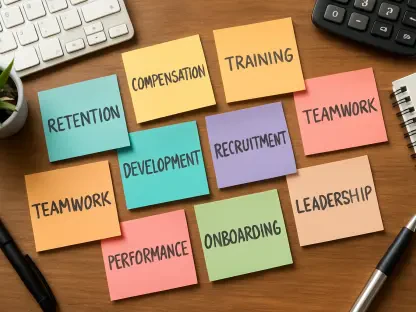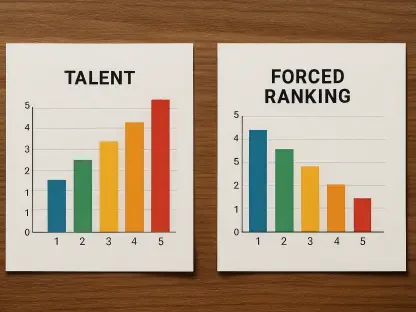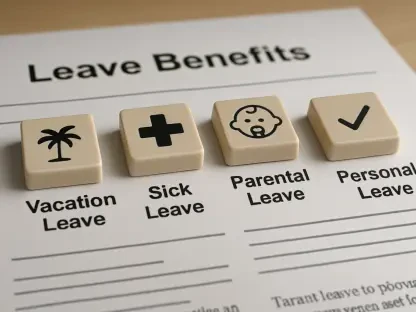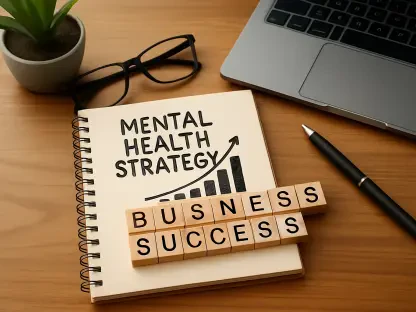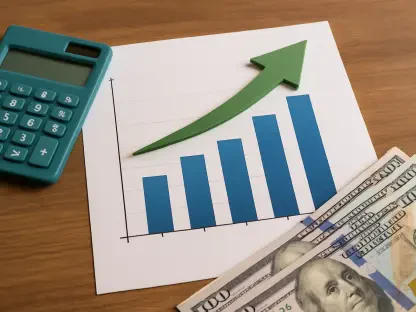I’m thrilled to sit down with Sofia Khaira, a renowned specialist in diversity, equity, and inclusion, who has dedicated her career to transforming talent management and development practices. As an HR expert, Sofia has been at the forefront of creating inclusive and equitable workplaces, and today, she’s here to share her insights on the intersection of artificial intelligence and human resources. In this conversation, we’ll explore how AI is reshaping HR roles, the balance between automation and human judgment, strategies for building trust in AI tools, and the future of HR in an AI-driven world.
How do you perceive the impact of recent headlines about AI-driven layoffs in HR, such as those at major tech companies, on the mindset of HR professionals?
These headlines definitely stir up a lot of anxiety among HR folks. When you read about significant layoffs or tasks being fully automated, it’s natural to question your own job security or wonder if your role is becoming obsolete. I’ve seen this firsthand in conversations with colleagues who feel a mix of fear and uncertainty about where they fit in this rapidly changing landscape. But I think it’s important to look beyond the sensationalism and recognize that these changes often target repetitive, administrative tasks, not the strategic or human-centric aspects of HR.
What strategies can HR teams adopt to maintain confidence in their value despite news of AI replacing certain roles?
HR teams need to focus on what makes them irreplaceable—skills like empathy, cultural understanding, and strategic thinking. I encourage HR professionals to upskill in areas where AI can’t compete, like conflict resolution or fostering workplace culture. Additionally, getting familiar with AI tools and learning how to leverage them can turn a perceived threat into an opportunity. It’s about reframing the narrative: AI isn’t here to replace us; it’s here to help us focus on what truly matters.
In what ways do you see AI integrating into the daily responsibilities of HR professionals, based on its growing importance to business success?
AI is already making a big difference in streamlining routine HR tasks. For instance, I’ve seen it simplify documentation processes, generate offer letters in a snap, and even assist in creating tailored training programs. These tools save so much time, allowing HR teams to shift their energy toward more impactful work. It’s becoming a vital part of managing workload efficiently, especially in larger organizations where administrative tasks can be overwhelming.
Are there specific HR functions you believe AI should never handle, and why do you feel that way?
Absolutely, there are areas where AI just can’t replicate human judgment. Things like conflict resolution, cultural development, or executive coaching require a deep understanding of emotions, context, and nuance—skills that are inherently human. I worry that relying on AI for these could lead to oversimplified solutions or even reinforce biases if the data isn’t handled carefully. These are the spaces where HR’s human touch is non-negotiable.
Given the low trust in AI making decisions without human oversight, how do you think HR professionals view its reliability, especially concerning issues like data quality or bias?
Many HR professionals I’ve spoken with share a healthy skepticism about AI’s reliability, particularly around data quality and potential bias. There’s a real concern that if the data feeding these systems isn’t accurate or representative, the outcomes could perpetuate inequities—like in hiring or performance evaluations. This wariness isn’t about rejecting AI but about ensuring it’s used responsibly. HR folks are often the first to flag these issues because we’re so attuned to fairness and inclusion.
What steps can HR teams take to build trust in AI tools within their organizations?
Building trust starts with transparency. HR can play a key role by educating employees about how AI tools work, what data they use, and how decisions are made. Involving staff in the implementation process and setting up clear guidelines for AI use also helps. I’ve found that regular check-ins to review AI outputs with human oversight can ease concerns. Plus, prioritizing ethical AI practices—like addressing bias proactively—shows a commitment to fairness that builds confidence across the board.
As AI becomes a strategic pillar for companies, what skills or knowledge do HR professionals need to stay relevant and lead in this shift?
HR professionals need to get comfortable with technology, even if it’s just a basic understanding of how AI systems operate. Skills like data analysis, digital literacy, and change management are becoming essential. Beyond that, strategic thinking is key—being able to design AI governance frameworks or navigate the ethical dilemmas of automation. Continuous learning is a must; I often advise colleagues to take courses or attend workshops on AI trends to stay ahead of the curve.
How can HR use AI to redefine their department’s purpose beyond just automating routine tasks?
AI offers a chance for HR to elevate its role from administrative to visionary. By offloading grunt work, we can focus on big-picture goals like building a stronger workplace culture or developing future leaders. For example, AI can provide insights from employee data to help tailor engagement initiatives or identify leadership potential. I’ve seen HR teams use these tools to drive meaningful conversations about diversity and inclusion, which ultimately reshapes how the department is perceived within the organization.
What risks do you see in relying too heavily on AI when rethinking HR’s role in an organization?
One major risk is losing the human element that defines HR. If we lean too much on AI, we might prioritize efficiency over empathy, which can erode trust and connection with employees. There’s also the danger of over-automation leading to decisions that don’t account for unique circumstances or cultural nuances. I think it’s critical to strike a balance—use AI for what it’s good at, but never let it overshadow the personal interactions and ethical considerations that are at the heart of HR.
What is your forecast for the future of HR in an AI-driven world?
I see HR evolving into a more strategic and influential function, where professionals act as architects of both technology and culture. AI will likely handle more complex workflows over time, but the need for human oversight and ethical guidance will only grow. I predict HR will lead the charge in ensuring AI is used responsibly, balancing innovation with humanity. My hope is that this synergy allows HR to focus on creating workplaces where people feel truly valued, supported, and empowered to thrive.


